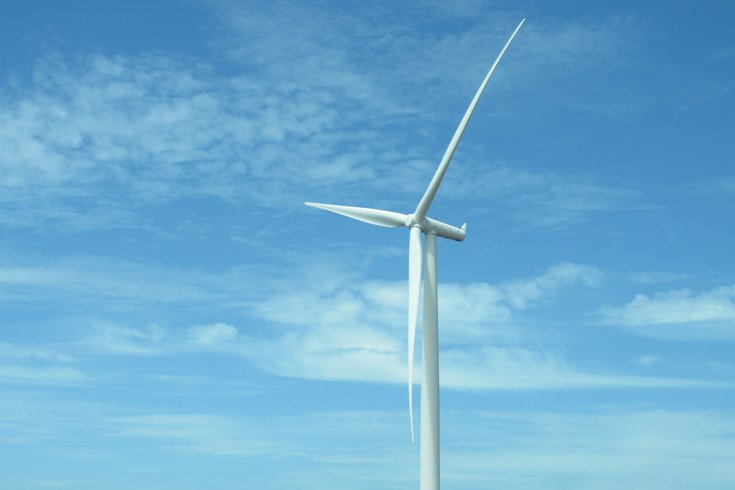
October 13, 2023
 Magda Ehlers/Pexels.com
Magda Ehlers/Pexels.com
Danish offshore wind energy developer Orsted has made a $100 million guarantee that its Ocean Wind 1 project in South Jersey will be operational by 2025. Above, a stock image of a wind turbine.
Plans for New Jersey's first offshore wind farm have a series of deadlines in place after the Danish energy company Orsted put up a $100 million guarantee to gets its Ocean Wind 1 project up and running.
Under an agreement with the New Jersey Board of Public Utilities, the wind farm must be operational by December 2025 or else Orsted will forfeit the money, which is being held in escrow, the Associated Press reported.
New Jersey has been one of the nation's most ambitious states in pursuing the development of wind power. Orsted's project in South Jersey, planned about 13 nautical miles southeast of Atlantic City, has been touted as capable of powering more than 380,000 homes.
But the project has faced a number of hurdles related to its costs and resistance from some groups in South Jersey's coastal communities.
The deadlines set by state regulators require Orsted to have the wind farm reach commercial operation in stages by May 1, Sept. 1 and Dec. 1, 2024. Orsted would lose the $100 million if the project within 12 months of the final deadline.
Under the agreement, Orsted would be able to recoup the money if it does not receive all of the necessary government approvals to complete Ocean Wind 1. If the company fails to build the project, that money could be returned to New Jersey ratepayers.
In August, the company said Ocean Wind 1 would be delayed until 2026 due to broader economic conditions in the U.S. and the inability to secure enough federal tax credits for the project. Prior to approving Ocean Wind 1, the Biden administration also had approved offshore wind projects off Massachusetts, Rhode Island and New York. During an earnings call, Orsted had said its U.S. projects appeared to be worth less than they had been at the time of approval, and that it may need to write off $2.3 billion on them.
New Jersey Gov. Phil Murphy has sought to make the state a leader in wind energy on the East Coast. His administration also has approved a second project with Orsted, Ocean Wind 2, that would power another 500,000 homes to the north of the Ocean Wind 1 project. Ocean Wind 2 does not yet have federal approval.
In June, the state created a legal carve-out that permits Orsted to keep federal tax credits for its wind farm projects instead of passing future savings on to ratepayers. When the company originally submitted its application to the Board of Public Utilities in 2019, it had said it would return current or future federal credits to ratepayers to keep the costs of wind energy down. Opponents of offshore energy in New Jersey filed a lawsuit challenging the lifting of that requirement for Orsted, arguing it amounts to a break for a single company.
During the earnings call this summer, Orsted said it had been considering abandoning Ocean Wind 1, but still planned to move forward.
The company's other U.S. projects have faced hurdles as well. Earlier this week, New York's Public Service Commission rejected requests by Orsted and other renewable energy companies to give them higher prices for their projects. The state's denial cited steep increases in energy costs for ratepayers if contracts with developers were revised. Many of the contracts for these projects were established when costs were lower.
The ruling in New York could be a major blow to offshore wind development in the U.S. Inflation and supply-chain issues have put the viability of previously approved projects in question.
In New Jersey, some opponents of offshore wind have argued that it will damage the ocean ecosystem and threaten wildlife. These groups and some Republican leaders in the state have linked whale deaths and strandings to pre-construction surveying offshore, but the National Ocean & Atmospheric Administration and the federal Bureau of Ocean Energy Management say there's no scientific proof of a connection between them. The NOAA contends climate change has pushed more whales and their prey into coastal areas where they are more likely to be struck by boats.